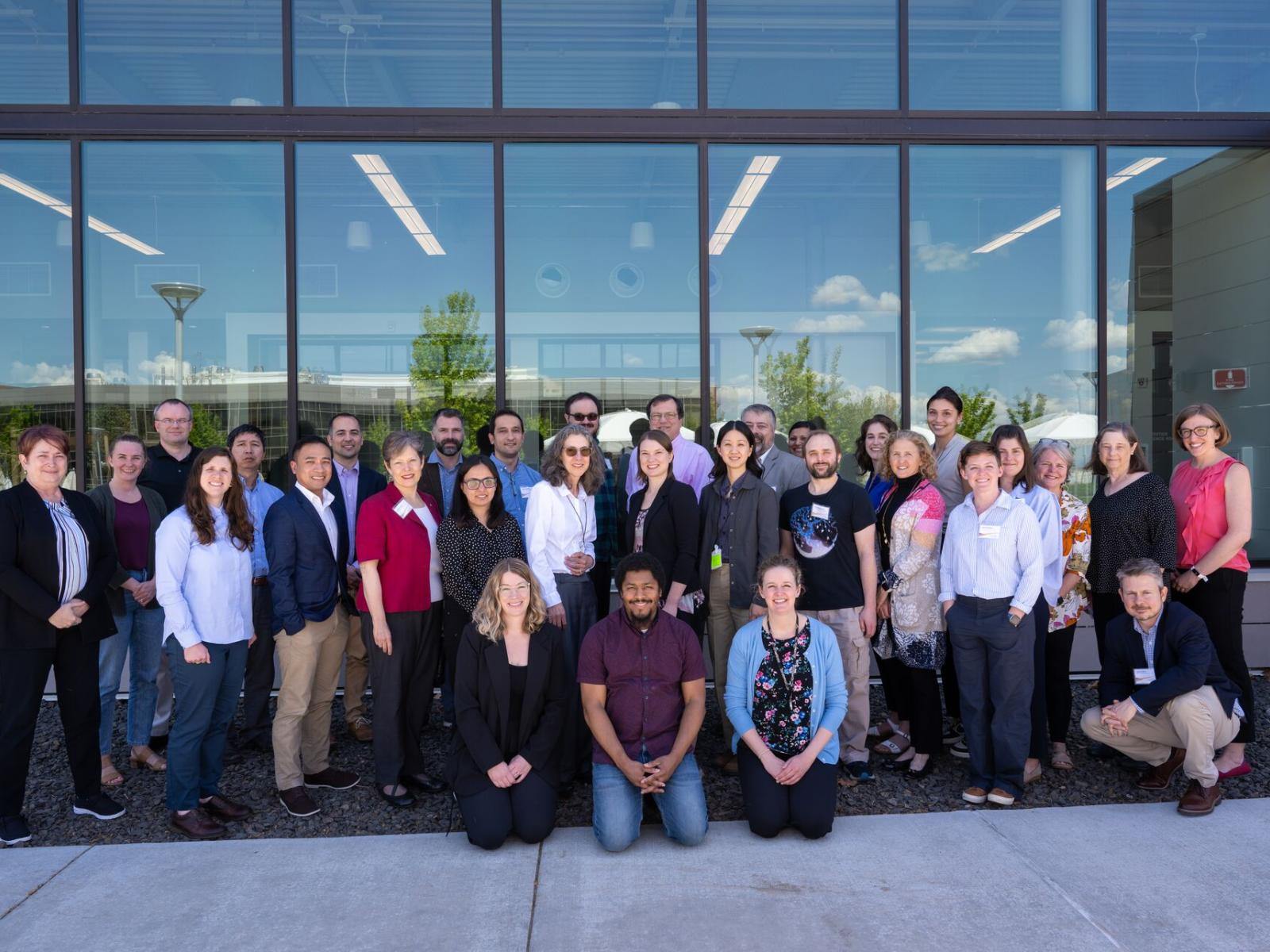Advancing Human Factors Research Through Collaboration
The first Human Factors Symposium sparked collaboration and community for future human factors research projects

Human Factors Symposium 2023
(Photo by Andrea Starr | Pacific Northwest National Laboratory)
Human factors research delves into the study of human interaction, performance, and capability. This encompasses interactions with technology as well as experiences in social and building environments. By gaining understanding of human behavior, researchers can better understand energy and security policies, human/machine interaction, and healthy building designs to support human wellbeing.
Recently, the Human Factors Symposium brought together researchers and leaders from national laboratories, universities, and industry. Over the course of three days, participants dove into relevant topics including the interaction between humans and artificial intelligence (AI), the impact of energy efficiency policies, and the dynamic interplay of humans in building environments.
“The symposium gave us an opportunity to collaborate with different human factors teams within Pacific Northwest National Laboratory (PNNL), but also with those across the nation. It was special to be able to have conversations about challenges, differences in research topics, and the growing field of human factors with those from different institutions and laboratories” said Corey Fallon, human factors psychologist and planning team member.
Mission and inspiration
Internally, PNNL has been focusing on the future of human factors research and applications, especially how to nurture the growing capability. This symposium provided an opportunity for researchers to connect, leverage, and align their complementary skill sets. Moreover, it served as a platform to foster a strong community and establish valuable connections for future collaborative activities. “One of the more notable outcomes of this event was that we were able to come together as a research community and discuss the role of human factors research in a technology-driven world. It was truly wonderful to see some of the most talented people brainstorm ways to tackle real-world challenges,” said Brett Jefferson, data scientist and Human Factors and Interactions team leader.
Valuable discoveries
The symposium provided attendees with networking opportunities, exposure to new methods and techniques, and the chance to develop collaborations. The involvement of national laboratories, academia, and government-affiliated entities allowed for a broad range of discussions in a scientific environment. Sessions included topics such as human factors for energy and security, building occupant behavior, AI to support analysts, and more.
The symposium encouraged engagement among attendees, leading to concrete discussions and stronger ties. “Being the first symposium, we had an interested and motivated group of attendees that wanted to learn and grow from others around them” said Jessica Baweja, applied research psychologist and PNNL human factors team member.
The event's well-planned schedule, diversity of attendees, and size created many networking possibilities. The main objective for the event was to establish new collaborations, and a dedicated lunchtime session fostered discussions on collaboration opportunities. Several new connections have already been made, according to participants.
The future
The first PNNL Human Factors Symposium was a success in uniting numerous organizations for the purpose of networking and idea generation. PNNL has set the stage as the first national laboratory to bring together human factors professionals from various federal institutions and academia.
The continuation of the symposium will be important for educating researchers, scientists, decision makers, and lab leaders on the value of human factors research and projects. The team believes that this is a step in the right direction for more internal and external collaboration on human factors work and provides the ability to build awareness around human factors research capabilities at large.
The symposium was supported in part by the Mathematics for Artificial Reasoning in Science Initiative.
Published: September 5, 2023